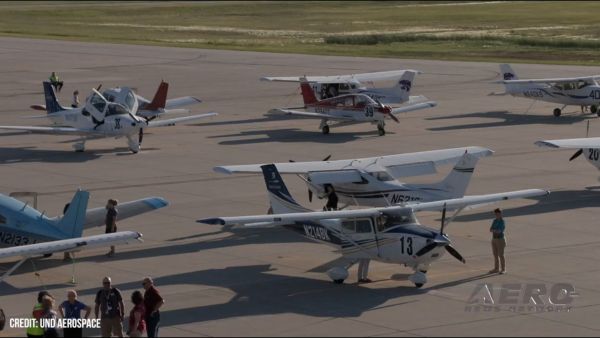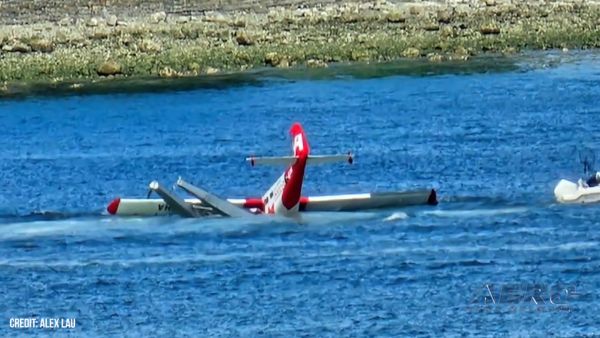The head of the
nation's largest airline pilot union has told Congress that a
proposal to loosen Department of Transportation rules on foreign
control of U.S. airlines would violate federal law, usurp Congress'
authority in setting such policies, and strike yet another blow
against airline workers.
"DOT's proposed rule essentially rewrites the statutory rule on
'actual control' enacted by Congress," said Capt. Duane Woerth,
president of the Air Line Pilots Association, Int'l (ALPA).
"Changes of this magnitude should be undertaken not by an
administering agency but by the legislative branch."
Woerth was testifying at hearings by the House Aviation
Subcommittee on a proposed DOT rule change that would radically
reduce controls that prevent foreign owners from dictating a
carrier's business practices and policies. In addition to raising a
number of technical and economic policy concerns, Woerth stressed
the effect that the rule change would have on airline workers.
"Pilots spend their entire careers accumulating the seniority
required to gain access to (international) flying opportunities. In
an era when the career expectations of pilots and other airline
workers already have been repeatedly frustrated by airline
bankruptcies, furloughs, wage concessions, pension plan
terminations, and the like, it would be a crowning blow for the
U.S. government now to adopt a policy that would tend to eliminate
international flying by U.S. carriers," he said.
Under the new rule, an
airline would only have to meet standards in four relatively minor
areas to remain in compliance with the statute prohibiting foreign
control: corporate documentation, participation in the Civil
Reserve Air Fleet program, TSA security regulations, and FAA safety
regulations. All other aspects of airline operations, including
prices, scheduling, markets, fleet structure, marketing, and
alliances, could be controlled by foreign investors, including a
U.S. carrier's foreign airline competitor.
Woerth said that such a departure from current standards amounts
to having an executive agency rewrite federal law, and proceeded to
methodically outline a series of major objections to the
proposal:
- It violates federal law prohibiting foreign control
- A foreign airline could change a U.S. carrier's schedules,
pricing, etc., to feed its own international operations, to
the detriment of the U.S. carrier and it employees
- For similar reasons, the U.S. carrier's ability to furnish
aircraft suitable for the U.S. military's CRAF program could
be reduced
- U.S. workers might not have the same labor law protections that
are available in the U.S. if a foreign owner began to play
them off against workers in a different country
- Aviation safety could be reduced because the proposed rule only
requires that foreign-controlled management meet minimum FAA
standards, whereas the enviable safety record of U.S.
carriers is the result of voluntary participation in programs
and practices that go well beyond minimum requirements
- Because of a provision in many bilateral aviation agreements,
any U.S. airline under foreign control could be disqualified
from providing service under those agreements
- The DOT has not demonstrated a need for foreign investment in
U.S. carriers, nor has it shown that investment will not occur
absent such a change
Woerth also criticized concessions made by U.S. trade
negotiators in the recent talks with the European Union. Citing a
June 2004 report from the U.S. Government Accountability Office on
the effects of easing restrictions on U.S.-European Markets, he
noted that the GAO concluded that whatever benefit U.S. carriers
and consumers would eventually gain from such an agreement might
not be realized for several years.
 This, according to the GAO, is
because the U.S. already has open access to the vast majority of
European traffic and the only significant restricted market --
London -- is subject to significant airport capacity constraints
that would not be eliminated by a liberalized agreement.
This, according to the GAO, is
because the U.S. already has open access to the vast majority of
European traffic and the only significant restricted market --
London -- is subject to significant airport capacity constraints
that would not be eliminated by a liberalized agreement.
"In other words, in the GAO's view, U.S. carriers were not
likely to benefit in the short term and possibly only to a small
extent even in the longer term by a US-EU 'open skies' agreement
similar to the initialed text," Woerth said.
 ANNouncement: Now Accepting Applications For Oshkosh 2024 Stringers!!!
ANNouncement: Now Accepting Applications For Oshkosh 2024 Stringers!!! Aero-News: Quote of the Day (06.13.24)
Aero-News: Quote of the Day (06.13.24) ANN's Daily Aero-Term (06.13.24): Dead Reckoning
ANN's Daily Aero-Term (06.13.24): Dead Reckoning ANN's Daily Aero-Linx (06.13.24)
ANN's Daily Aero-Linx (06.13.24) ANN FAQ: How Do I Become A News Spy?
ANN FAQ: How Do I Become A News Spy?



